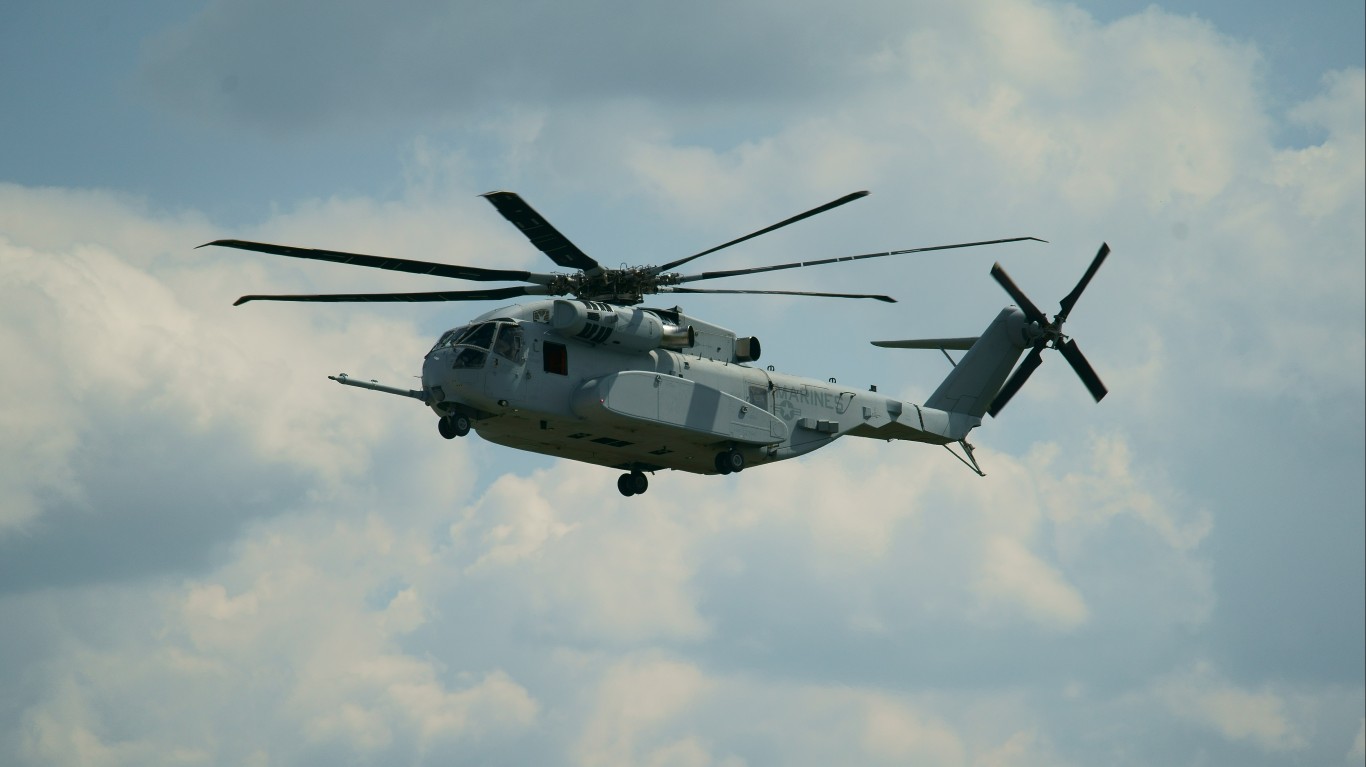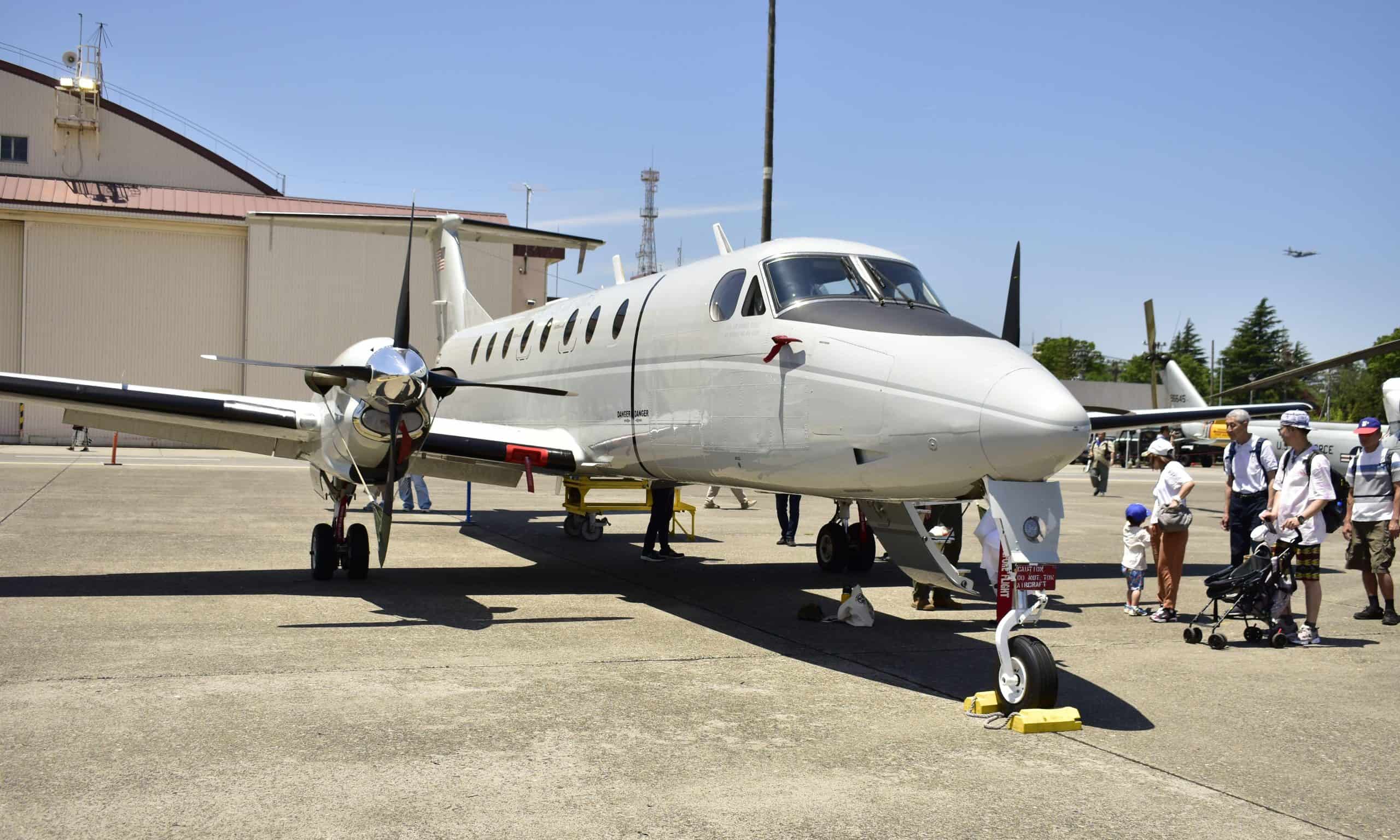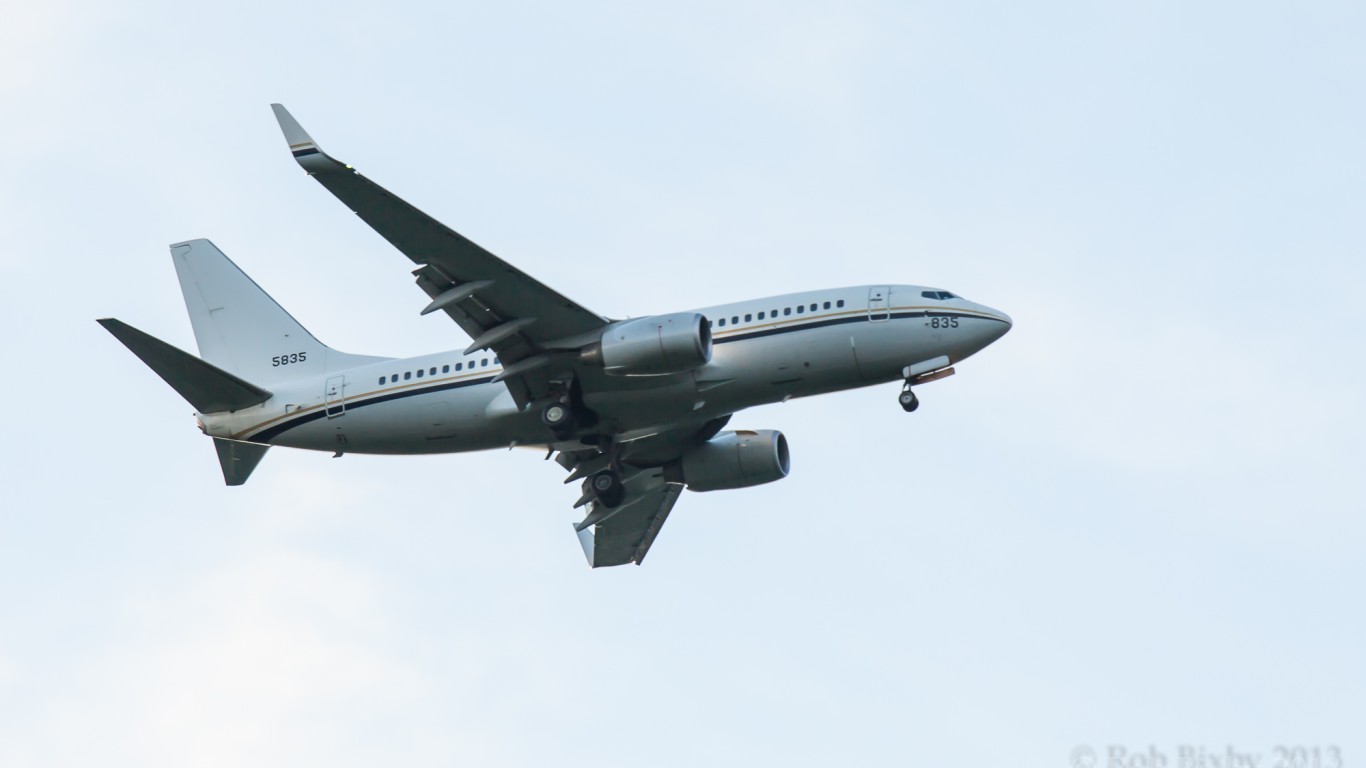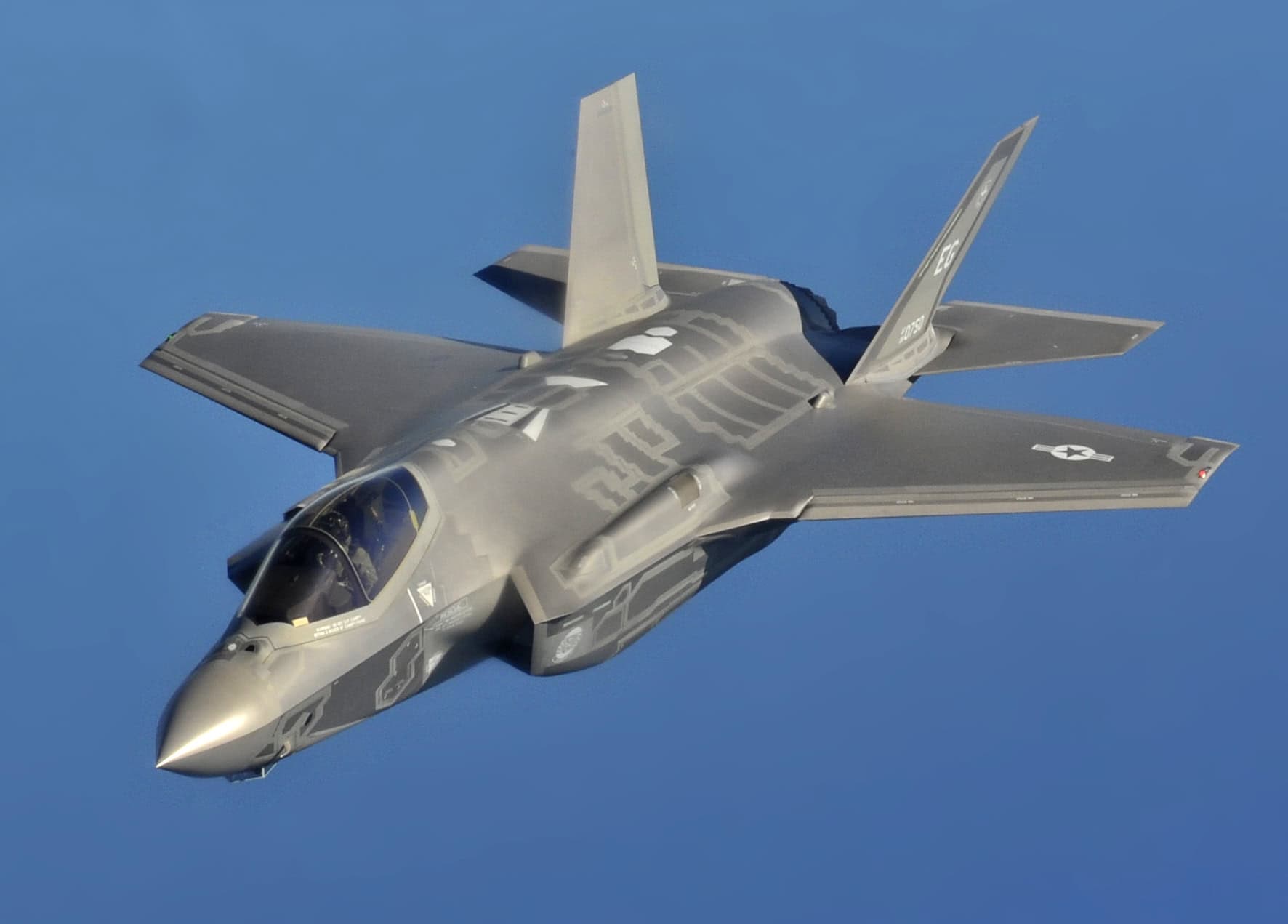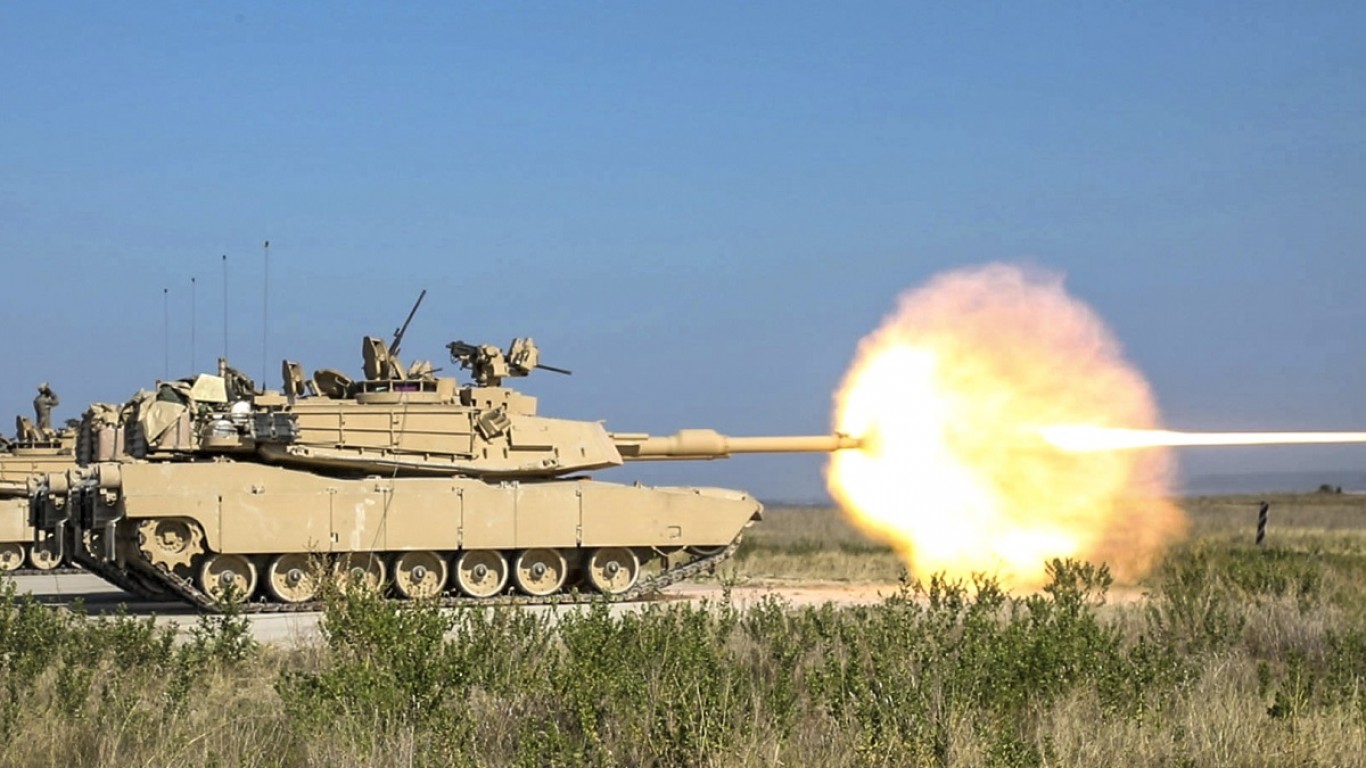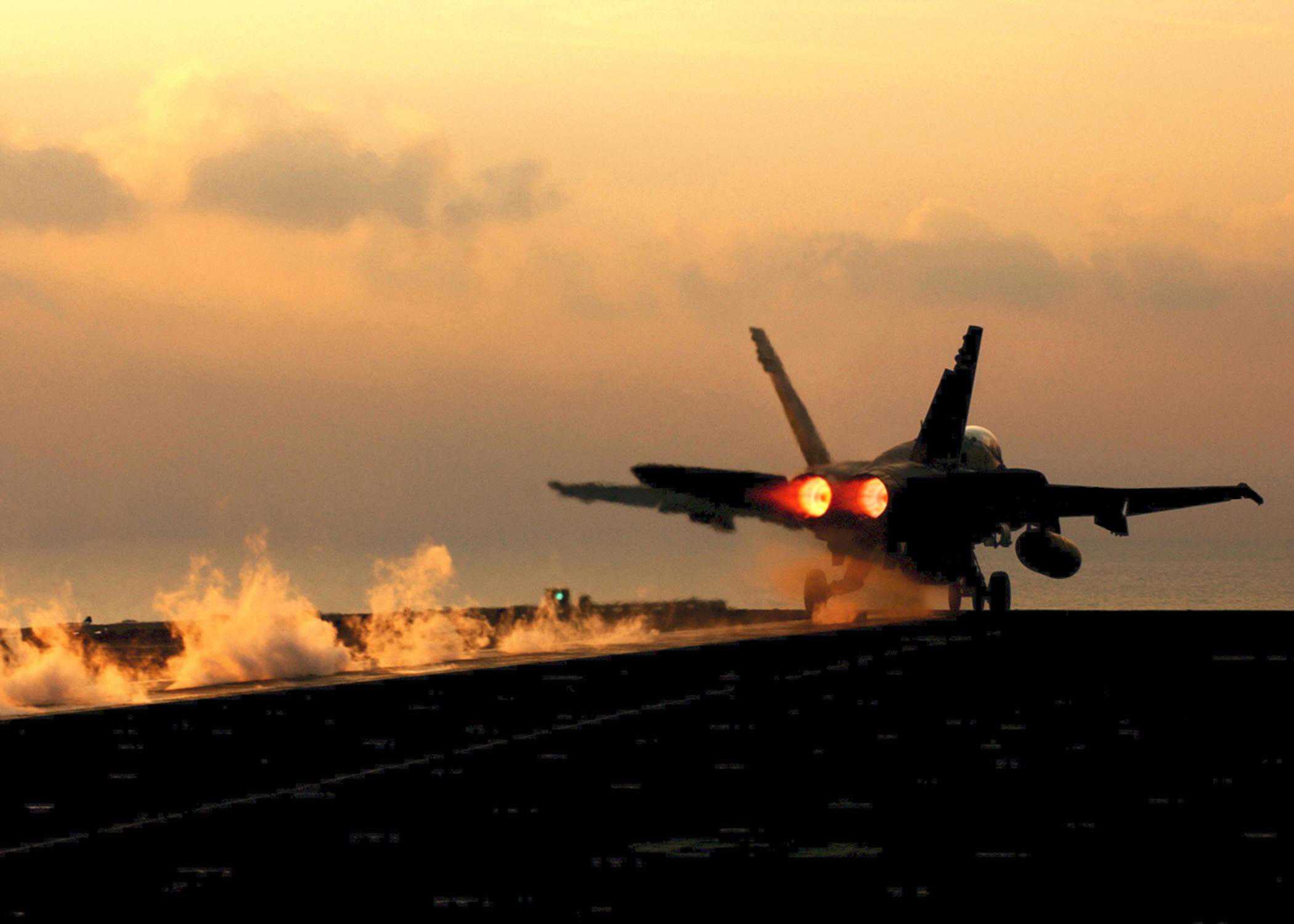
24/7 Wall St. Insights:
- The F-35 Lightning II and F/A-18 Hornet are two of the fastest fighter jets currently in the U.S. Marine Corps
- The Pratt & Whitney F135 engine powers the F-35 Lightning II
- The F-35 Lightning II can hit speeds up to Mach 1.6 or 1,200 mph
- Also: Discover the next Nvidia
Fighter jets play an incredibly important role in the U.S. Marine Corps. Aircraft like the F/A-18 Hornet and the F-35 Lightning II are widely known for their effectiveness in combat and exceptional speed, with both capable of hitting speeds over Mach 1.5.
In particular, the F-35 Lightning II is one of the most advanced fighter jets on the planet and it owes much of its impressive performance to the Pratt & Whitney F135 engine. This advanced propulsion system is one of the main factors in making the F-35 one of the most formidable fighter jets in the world today. (This is the most mass-produced carrier-borne plane in WWII.)
The F135 engine draws its roots from the F119 engine used in the F-22 Raptor, but it has been significantly improved to meet the needs of the Lightning II. It is capable of producing thrust of up to 43,000 pounds, which allows it to reach speeds around Mach 1.6 or 1,200 mph.
One other interesting fact about the F135 engine is that it plays into the overall stealth capabilities of the aircraft. The exhaust system for the engine reduces the infrared signature making it much harder for sensors or missiles to pick up on the F-35.
Outside of the F-35, 24/7 Wall St. is taking a look at the U.S. Marine Corps aircraft at large. To identify the fastest aircraft currently in service of the U.S. Marine Corps, 24/7 Wall St. reviewed data from the 2024 World Air Forces report from FlightGlobal, an aviation and aerospace industry website, and ranked the aircraft by top speed. Additionally, we’ve included supplemental information on the type of aircraft, how many are in active service, and armament. (Every rank in the U.S. Marine Corps and what they’re paid.)
Here is a look at the fastest U.S. Marine Corps aircraft:
Why Are We Covering This?
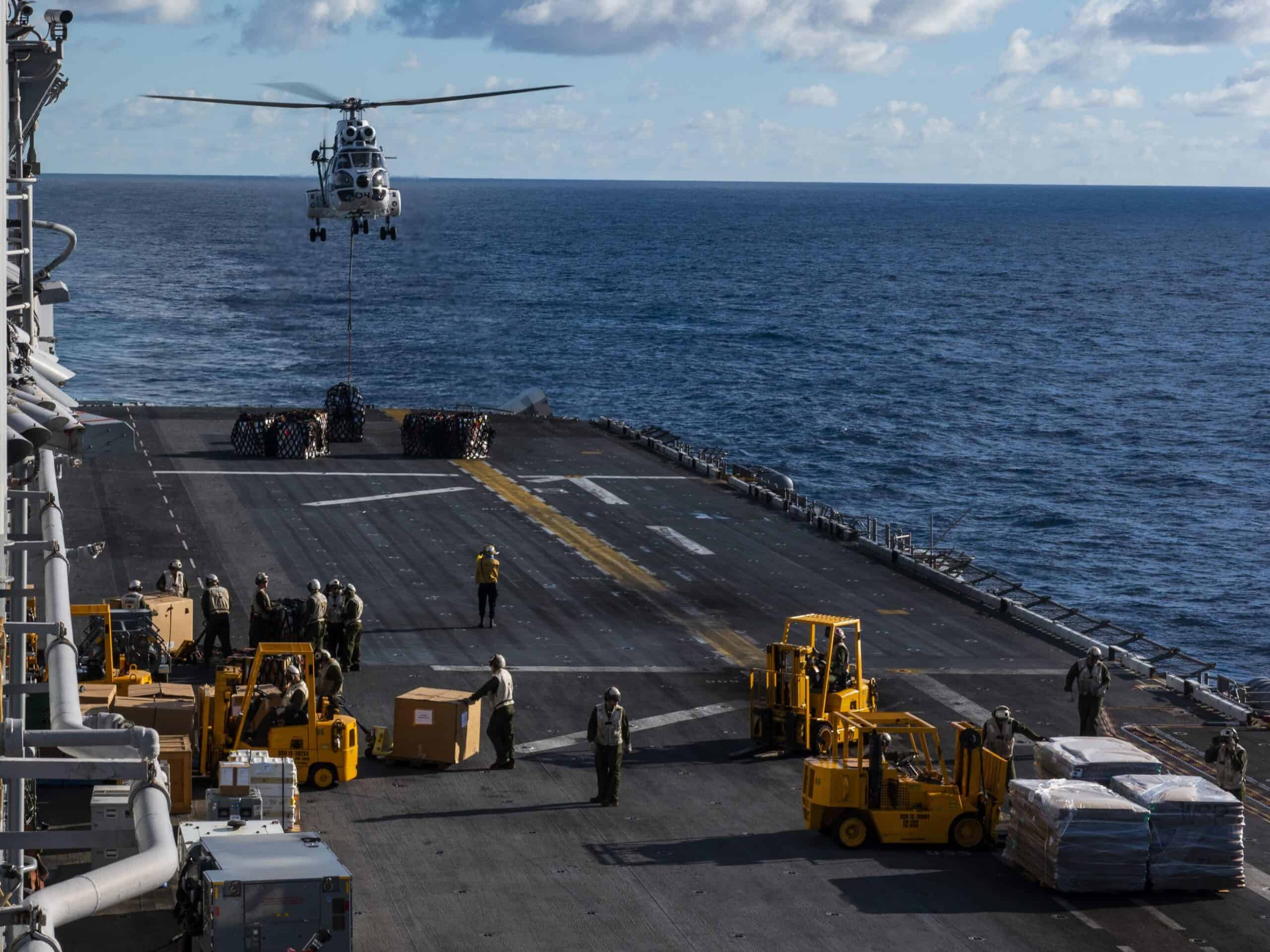
On average, the U.S. spends $400 billion a year on the operation and support of its military units. In 2024, $5.7 billion was budgeted to the Marines Corps for aviation readiness. Overall, the Department of Defense has $2.02 trillion in budgetary resources which is 14.6% of the federal budget for 2024.
15. UH-1Y Venom
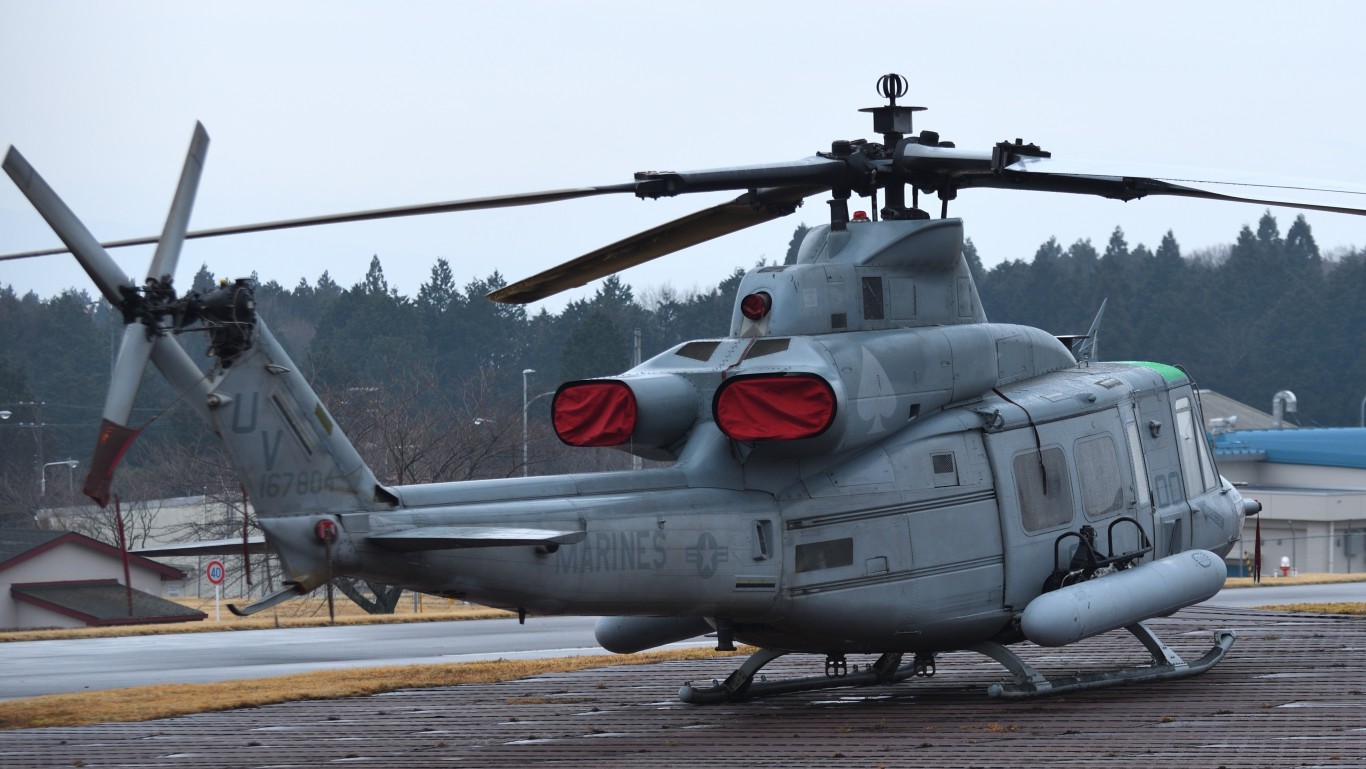
- Type: Medium-lift utility / transport helicopter
- Year introduced: 2009
- Active aircraft: 127
- Top speed: 190 mph
- Armament: 7.62mm machine guns, 12.7mm GAU-16/A gatling guns, hydra rocket pods
14. CH-53K King Stallion
- Type: Heavy-lift transport helicopter
- Year introduced: 2018
- Active aircraft: 11
- Top speed: 196 mph
- Armament: 12.7mm heavy machine guns, 12.7mm GAU-21 miniguns
13. CH-53E Super Stallion
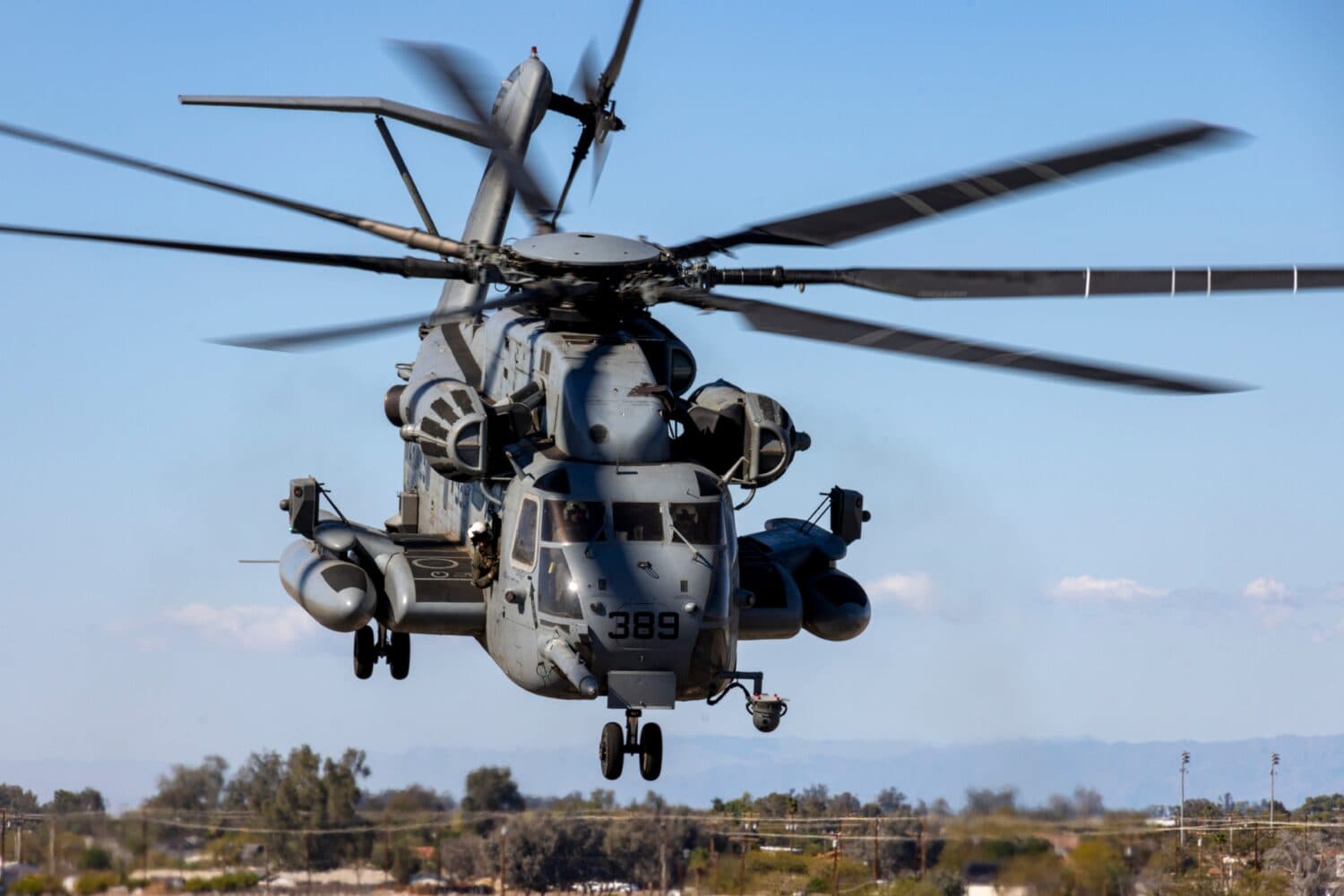
- Type: Super heavy-lift transport helicopter
- Year introduced: 1981
- Active aircraft: 135
- Top speed: 196 mph
- Armament: 12.7mm heavy machine guns, 12.7mm GAU-21 miniguns
12. AH-1Z Viper
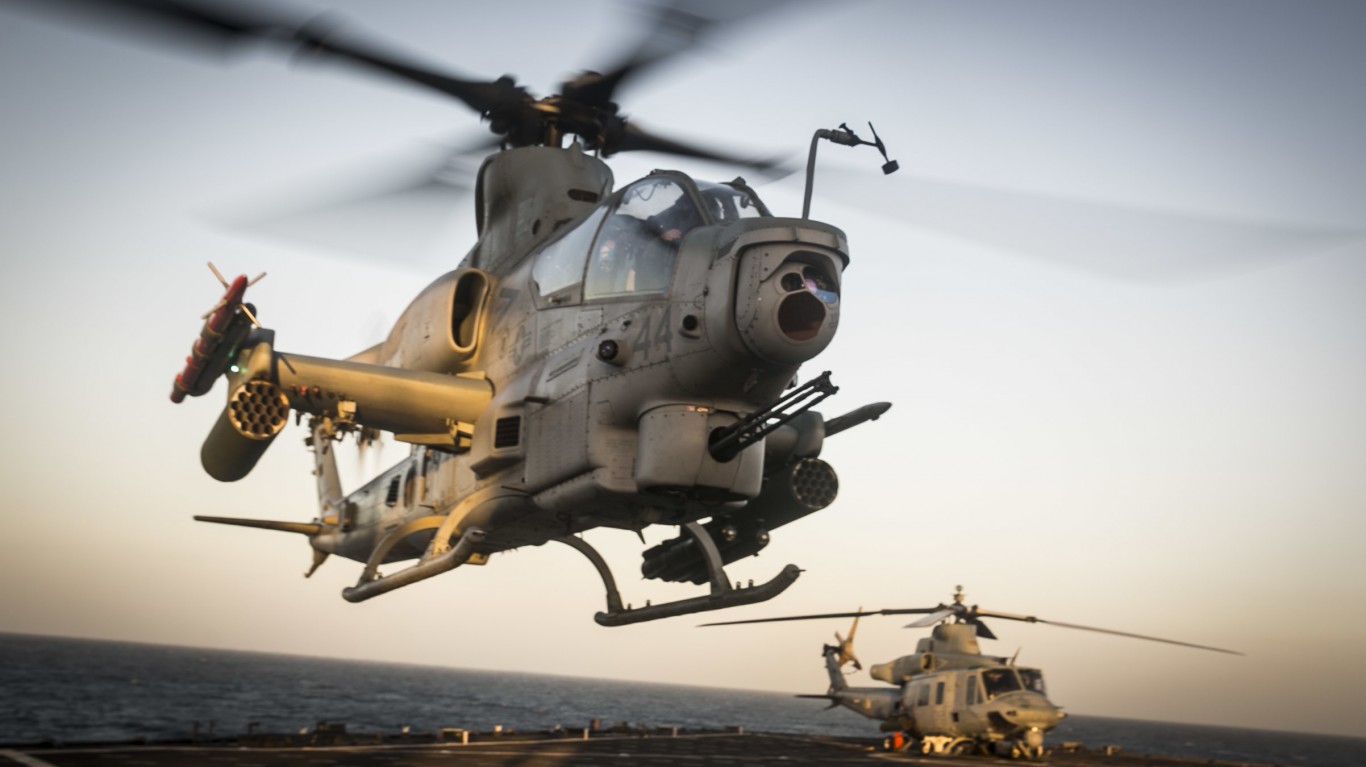
- Type: Twin-engine attack helicopter
- Year introduced: 2010
- Active aircraft: 176
- Top speed: 255 mph
- Armament: 20mm M196 cannon, Hellfire missiles, air-to-surface missiles, Sidewinder missiles, Hydra rocket pods
11. MV-22 Osprey
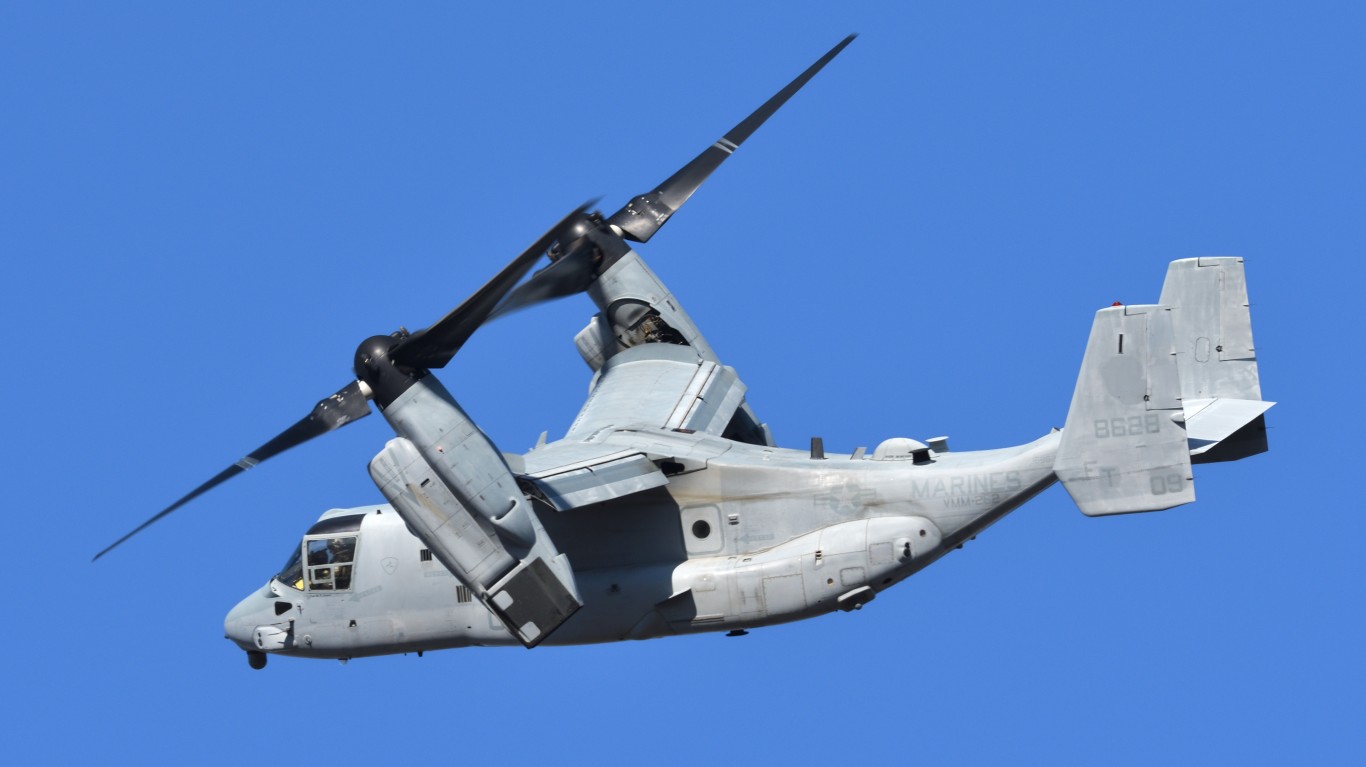
- Type: Tiltrotor VTOL aircraft
- Year introduced: 2007
- Active aircraft: 288
- Top speed: 316 mph
- Armament: 7.62mm machine guns, 12.7mm machine guns
10. T-34 Mentor
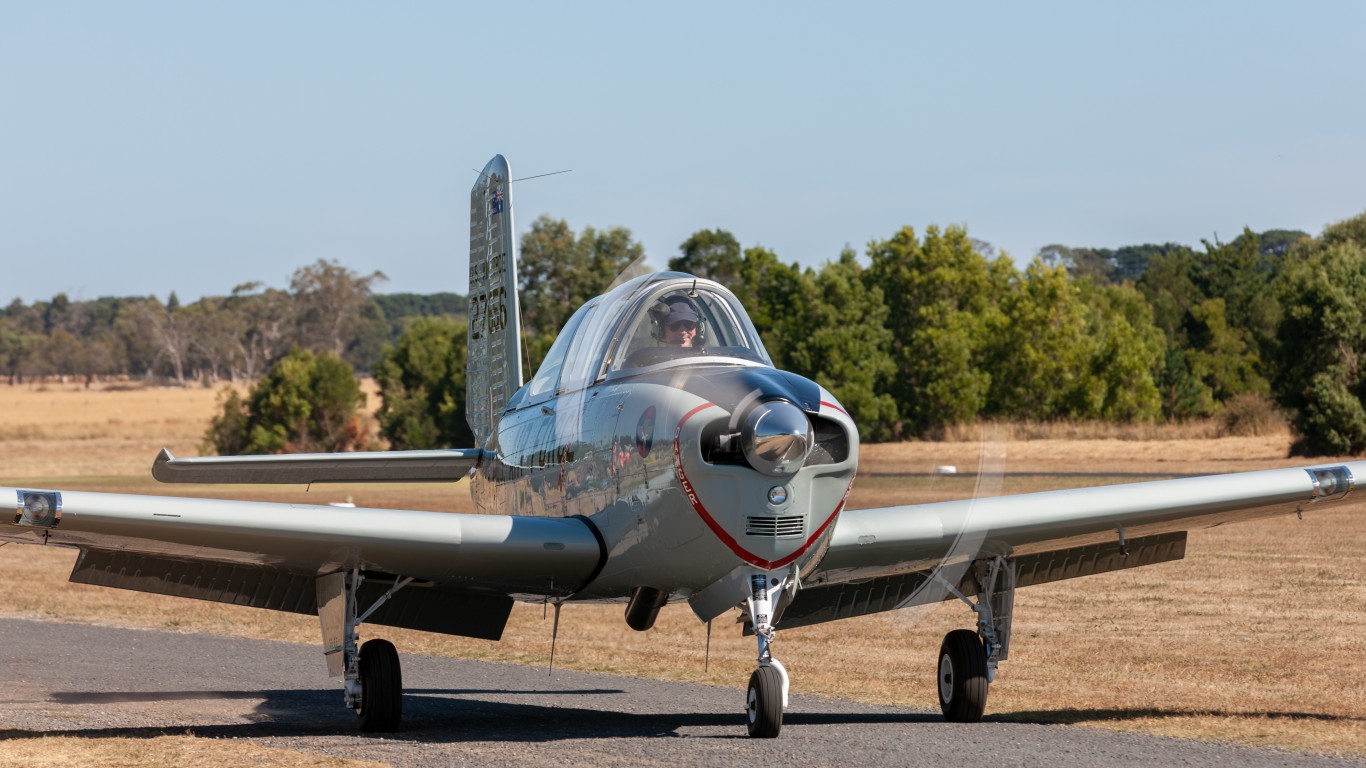
- Type: Basic trainer / light attack aircraft
- Year introduced: 1953
- Active aircraft: 2
- Top speed: 322 mph
- Armament: 1,200 lbs of drop ordnance
9. C-12 Huron
- Type: Special mission aircraft
- Year introduced: 1974
- Active aircraft: 15
- Top speed: 332 mph
- Armament: N/A
8. KC-130 Super Hercules

- Type: Aerial tanker / transport aircraft
- Year introduced: 1962
- Active aircraft: 69
- Top speed: 416 mph
- Armament: N/A
7. Citation Encore/Sovereign/Ultra
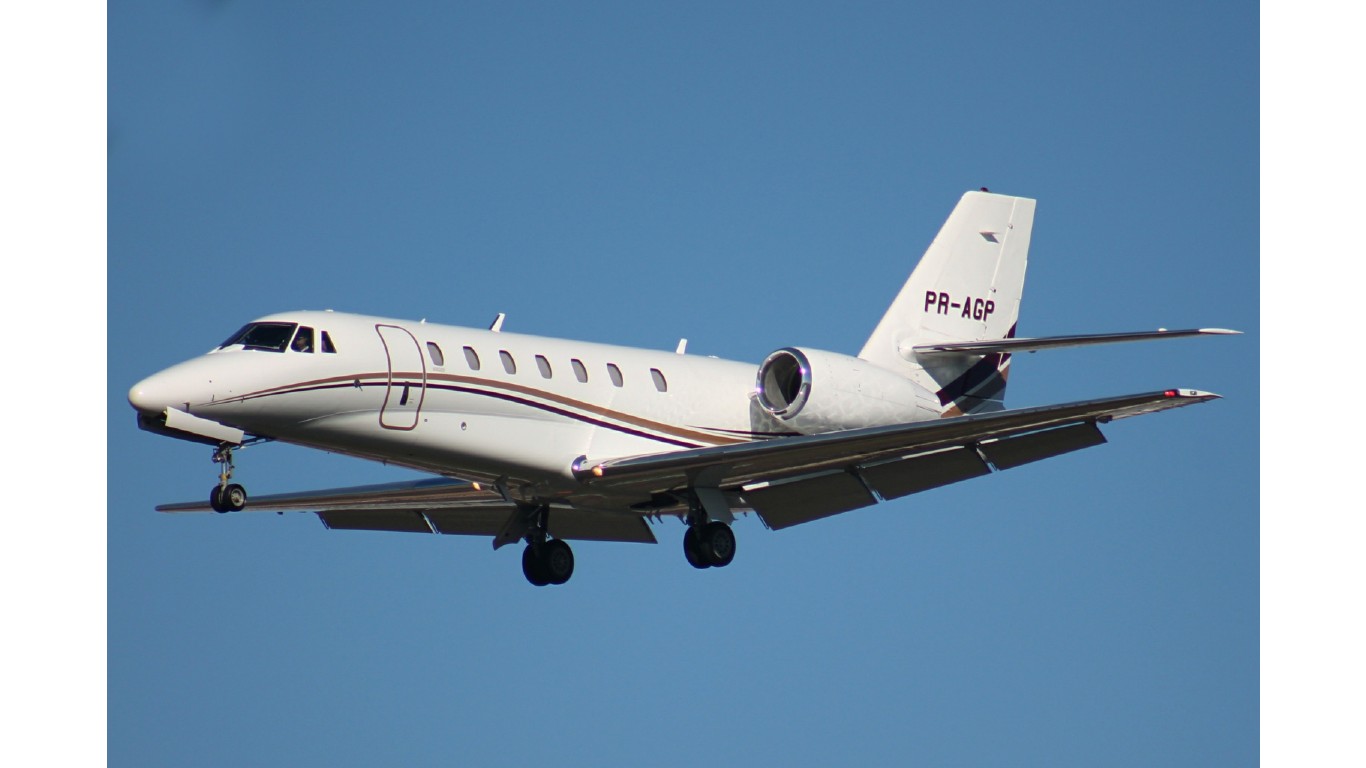
- Type: Transport aircraft
- Year introduced: 2004
- Active aircraft: 10
- Top speed: 490 mph
- Armament: N/A
6. C-40 Clipper
- Type: Transport aircraft
- Year introduced: 2001
- Active aircraft: 17
- Top speed: 544 mph
- Armament: N/A
5. C-20 Gulfstream IV

- Type: Military VIP passenger transport aircraft
- Year introduced: 1983
- Active aircraft: 1
- Top speed: 582 mph
- Armament: N/A
4. AV-8B+ Harrier II
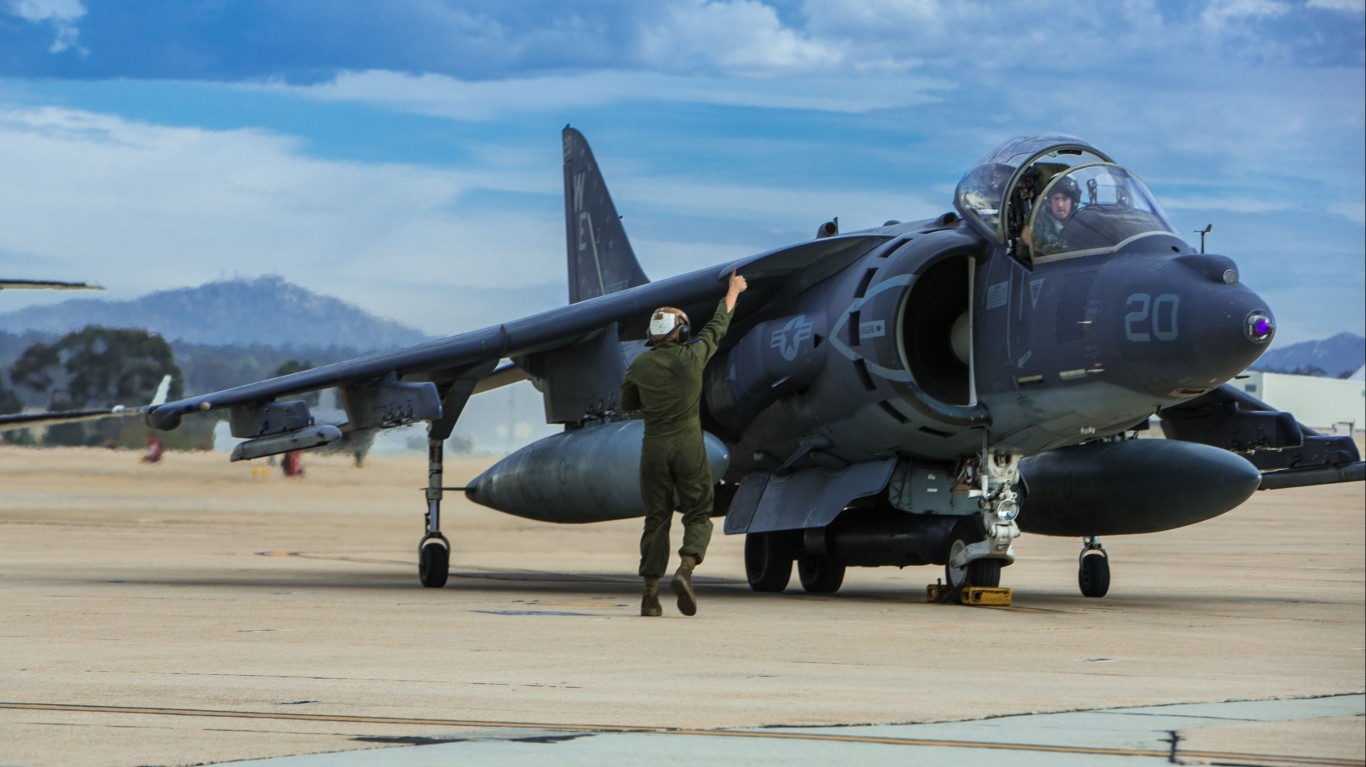
- Type: Short take-off and vertical landing strike aircraft
- Year introduced: 1985
- Active aircraft: 99
- Top speed: 665 mph
- Armament: 30mm ADEN cannons, drop bombs, laser-guided bombs, Maverick missiles, Harpoon missiles, cluster munitions, Sidewinder missiles, AMRAAM missiles, joint direct attack munitions
3. F-5 Freedom Fighter
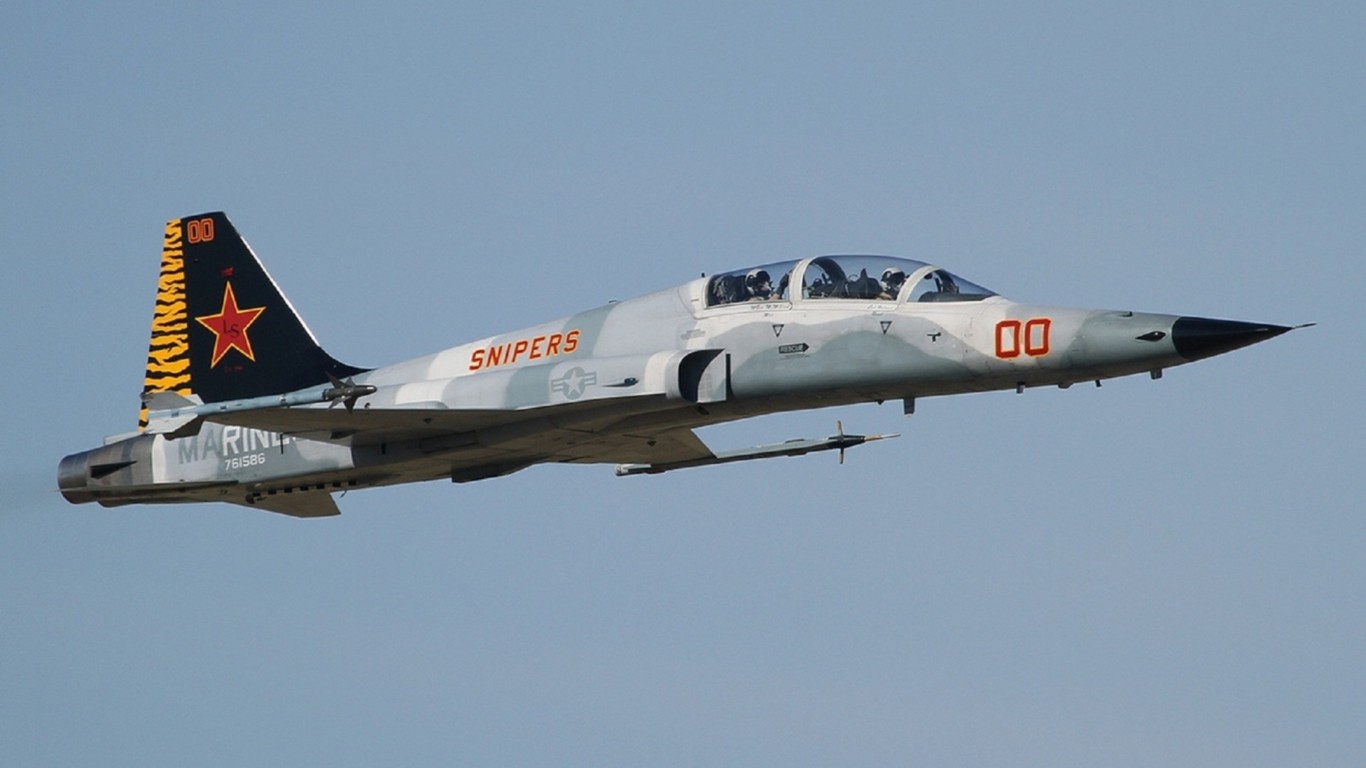
- Type: Lightweight multirole aircraft
- Year introduced: 1962
- Active aircraft: 12
- Top speed: 1,077 mph
- Armament: 20mm M39A2 automatic cannon, Sidewinder missiles, Maverick missiles, rocket pods, drop bombs, cluster bombs, nuclear drop bombs
2. F/A-18 Hornet

- Type: Carrier-based strike fighter aircraft
- Year introduced: 1983
- Active aircraft: 186
- Top speed: 1,190 mph
- Armament: 20mm M61 Vulcan cannon, Sidewinder missiles, Sparrow missiles, Maverick missiles, Harpoon missiles, HARM missiles, laser-guided / precision drop bombs, gun pods, rocket pods, nuclear-tipped ordnance
1. F-35 Lightning II
- Type: Multirole fifth generation strike fighter aircraft
- Year introduced: 2016
- Active aircraft: 145
- Top speed: 1,199 mph
- Armament: 25mm GAU-12/U cannon in external pod, Sidewinder missiles, Paveway guided bombs, Rockeye II bombs, Brimstone missiles, Storm Shadow missiles, drop bombs
Get Ready To Retire (Sponsored)
Start by taking a quick retirement quiz from SmartAsset that will match you with up to 3 financial advisors that serve your area and beyond in 5 minutes, or less.
Each advisor has been vetted by SmartAsset and is held to a fiduciary standard to act in your best interests.
Here’s how it works:
1. Answer SmartAsset advisor match quiz
2. Review your pre-screened matches at your leisure. Check out the advisors’ profiles.
3. Speak with advisors at no cost to you. Have an introductory call on the phone or introduction in person and choose whom to work with in the future
Thank you for reading! Have some feedback for us?
Contact the 24/7 Wall St. editorial team.
